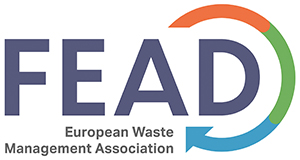The EU is strongly committed to achieving climate neutrality by 2050 and the transition to a circular economy is a prerequisite towards this objective. In this context, safe shipments of waste are key, as they enable the re-looping of valuable secondary raw materials back into the economy and incentivise circular economy business models. However, it is clear to the waste management industry that the ongoing revision of the rules on the shipments of waste do not sufficiently consider and acknowledge this vital enabling role.
 Achieving a circular and more resource efficient economy requires major changes in our production and consumption models and is intrinsically based on logistical chains across the EU and around the world. Our ambitious circular economy relies on cross-border supply chains, as market openness goes hand-in-hand with better economic performance. It is not questioned, that as in any other sector, rules are needed, and therefore the EU Waste Shipment Regulation (WSR) should set a clear legal framework that will ensure their safety, efficiency, and alignment with environmentally sound practices.
Achieving a circular and more resource efficient economy requires major changes in our production and consumption models and is intrinsically based on logistical chains across the EU and around the world. Our ambitious circular economy relies on cross-border supply chains, as market openness goes hand-in-hand with better economic performance. It is not questioned, that as in any other sector, rules are needed, and therefore the EU Waste Shipment Regulation (WSR) should set a clear legal framework that will ensure their safety, efficiency, and alignment with environmentally sound practices.
Waste should be able to find its way to the most adequate facility for its best and safest treatment, which may not always be the closest facility. Like other industries, the one of waste management also requires economies of scale to remain a competitive and innovation driven sector, that pursues the highest level of protection of the environment and of human health in a cost-efficient way. By the same token, as manufacturing processes are globalised, so is the demand of end-of-life products and raw materials for recycling that will be re-integrated in those processes.
Therefore, the changes needed in the current legislative framework, cannot translate into increased burdens, or the imposition of import/export bans. The European waste management industry resolutely supports the improvements in the current revision proposals, especially the introduction of electronic procedures, which will increase the speed, efficiency, transparency and traceability of the procedures. Yet, it firmly warns against unnecessarily heavy, costly, and lengthy procedures, which constitute trade impediments to circularity.
The outcome of the vote in the European Parliament’s Environment committee on 1 December has grown concerns amongst the waste management industry, with some proposals being largely seen as a de facto export ban. FEAD strongly stands by the objectives of the Basel Convention to prohibit exports of hazardous and untreated waste to non-OECD countries where environmentally sound practices cannot be ensured. Nevertheless, it remains essential that operators are allowed to safely export non-hazardous ‘green listed’ waste, which is a commodity, beyond EU borders to be integrated as secondary raw materials in manufacturing processes. The extreme administrative burden that is intended to be put on third countries to be able to receive such ‘green listed’ waste will have a disproportionate deterrent effect, while sound environmental management, transparency, and traceability can be equally and sufficiently ensured through audit procedures.
Such restrictions will not only particularly affect waste flows, such as metals and paper, where there is already insufficient demand in Europe due to globalisation, but also small Member States, which do not have economies of scale, and all required specialised treatment plants. This is the case especially for islands, which heavily rely on exports to the EU27 and to third countries, such as the UK, Turkey, US or to Asia. In Ireland, for example, there are no paper mills and no large metal smelters as the global nature of business forced their closure. Ireland’s markets for recovered paper and metals is mainly outside the EU. This accounted for around 80% of the country’s exports in 2021, with almost 30% of the recovered paper being destined particularly to India. Even though EU markets will continue to be accessible after the intended trade restrictions outside the bloc, capacities will be covered with national paper/metals or paper/metals coming from neighbouring countries first. Considering the damaging effects of trade restrictions for the European waste management industry, including the loss in competitiveness, the industry will not be able to scale up capacities to import the waste from the small EU countries that need it.
Illegal waste shipments and waste criminality have rightly drawn public attention, which has associated them with the need to end waste shipments altogether. However, illegal practices frequently mean that the existing rules are entirely circumvented, so that shipment are not even reported as a shipment of waste but as something else (often used goods). This reality tarnishes the image of our sector and undermines legitimate waste treatment and recycling industries, while bans and increased financial and administrative burdens will most likely not end such damaging practices but hamper the circular economy instead.
Ergo, the European waste management industry, represented by FEAD, calls on the EU legislator to reinforce controls and enforcement measures, improve traceability and cooperation among Member States, and to establish strong harmonised end-of-waste criteria and criteria to distinguish between used goods and waste. Concurrently, to transition to a circular economy, safe waste shipments need to be facilitated through clear, efficient, and harmonised rules that enable the re-incorporation of valuable secondary raw materials back into value chains and incentivise circular economy models in Europe and beyond.

